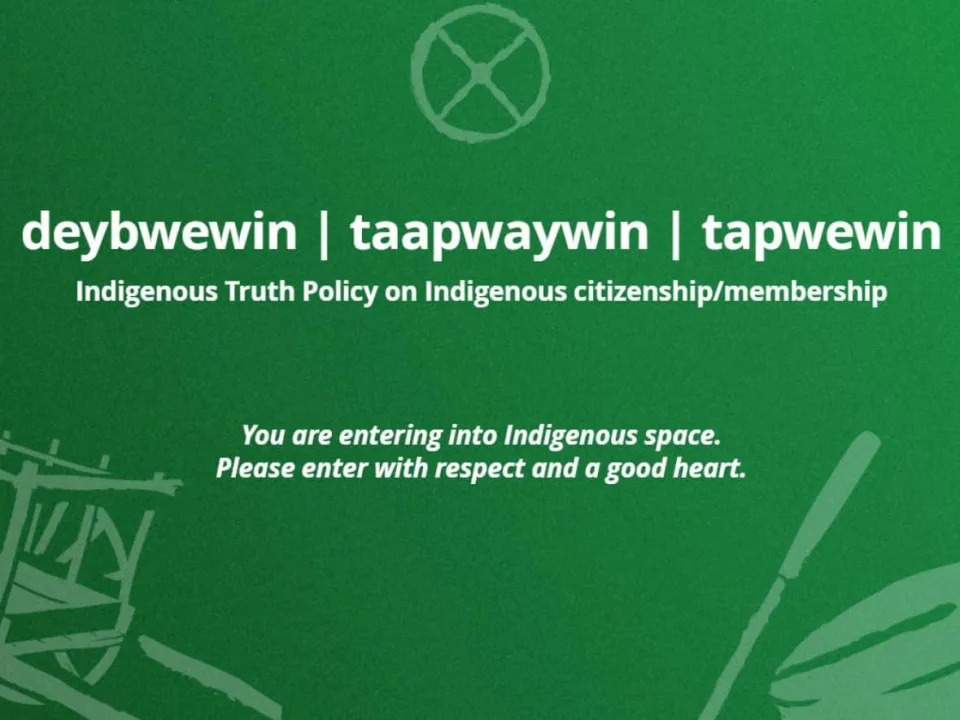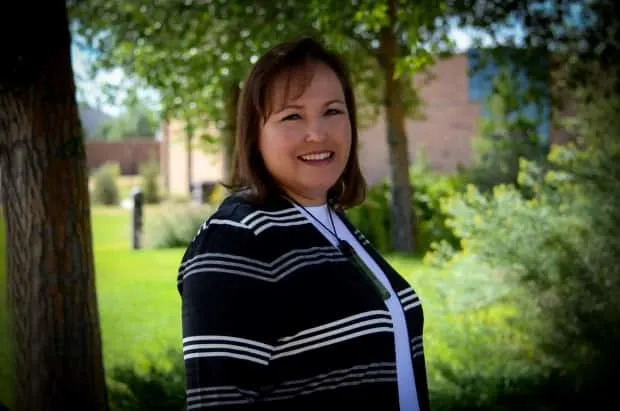Fri, March 3, 2023

The University of Saskatchewan has launched a website aimed at verifying membership or citizenship in Indigenous communities. (Indigenous.usask.ca - image credit)
The University of Saskatchewan has launched a website it hopes will help ensure that only genuine Indigenous people will benefit from jobs and funding set aside for them.
The site is a portal, enabling First Nations, Métis, Inuit and international Indigenous peoples applying for Indigenous-specific jobs, scholarships or funding to upload proof they belong to an Indigenous community.
It also provides a verification process for those without documentation.
The website is the latest step in a long process that began in late 2021, shortly after CBC published a story that showed high-profile Prof. Carrie Bourassa, who had claimed to be Métis, Anishnabe and Tlingit, was of entirely European ancestry. Following an internal investigation, Bourassa resigned from the U of S.
At that time, the university followed the honour system — self-identification — when it came to claims of Indigenous ancestry. If someone said they were Indigenous, the university accepted it without question.
Since that time, the university has publicly said the honour system is no longer acceptable. Angela Jaime, the university's interim VP of Indigenous engagement, says the new system represents a concrete change.
"We know that there are already individuals who may not be truthful about who they are and their connection to community who are employed across Canada in government, in private sector and in institutions of higher learning," she said. "So it makes no sense to allow them to continue to occupy Indigenous space if they are not themselves Indigenous."

Artsandscience.usask.ca
Jamie says while the site is run by the university, Indigenous communities are in the driver's seat when it comes to deciding what qualifies as proof of membership or citizenship.
She says the proof could be a status or citizenship card, though the community might be open to other forms of proof.
"It's the Indigenous governments and communities that determine what that documentation looks like, whether that be a physical piece of paper, a card or an oral history and who adjudicates that. It's those communities that decide that for us — not the university determining it," Jaime told CBC.
She says the new system will not only apply to future applications for jobs, scholarships and funding, but also to those already benefitting from such opportunities.
"Anyone who holds Indigenous space, Indigenous-specific roles or material advantage in any way will be required to go through the verification process," she said.
Between 100 and 150 university faculty and staff will be required to go through that process, she says, which will be done in stages over the next year. The process for existing students will take place at a later time.
Jaime says there will be an appeals process if the documentation is deemed insufficient. However, she says, the final decision will rest with the Indigenous community being claimed by the applicant.
"It's the sovereign inherent rights of Indigenous people to determine the way forward," she said, "not Western institutions like the University of Saskatchewan or any other university."
No comments:
Post a Comment